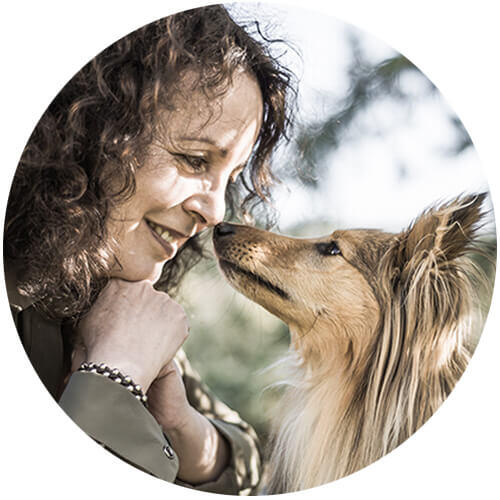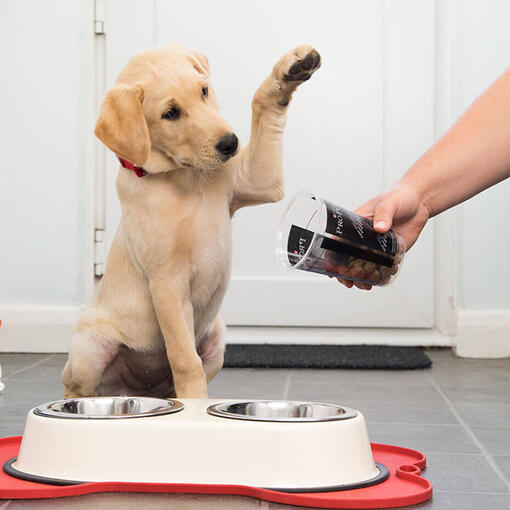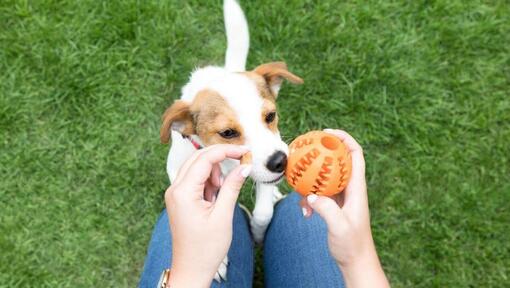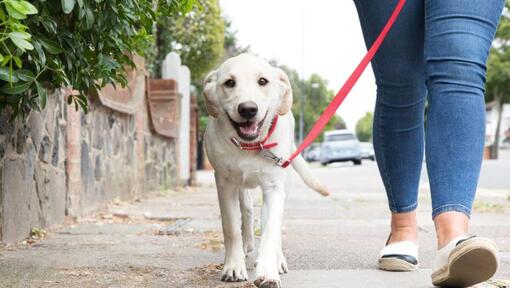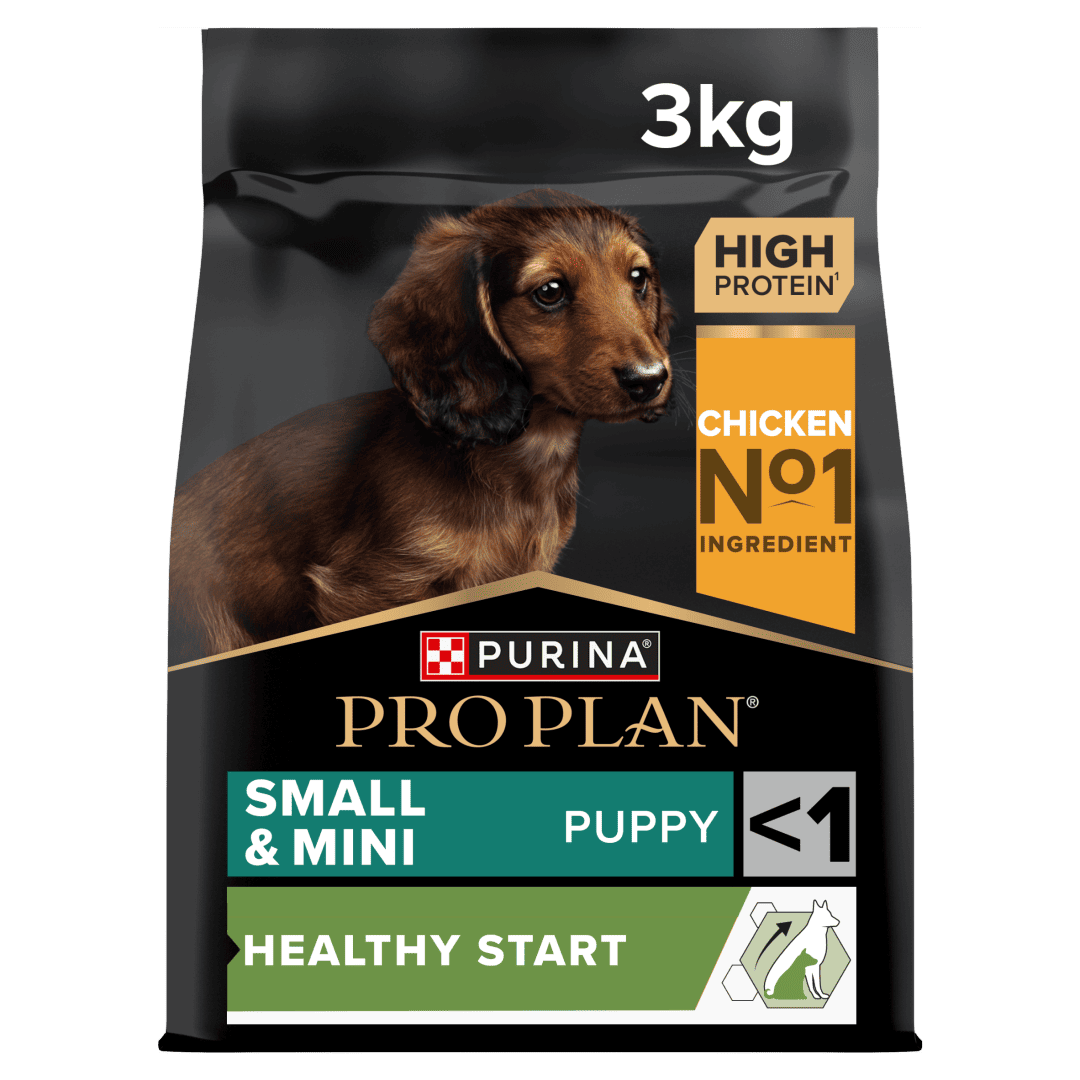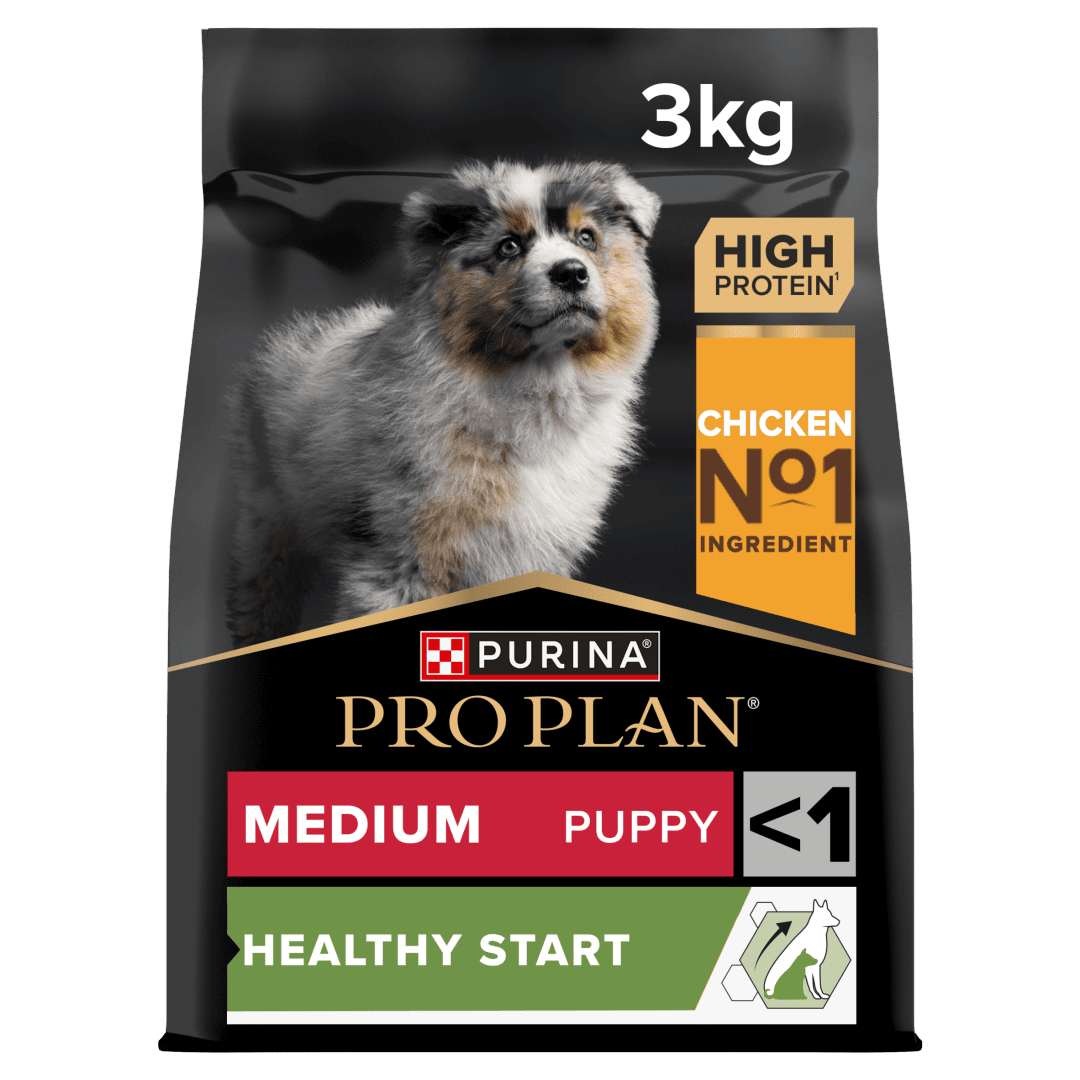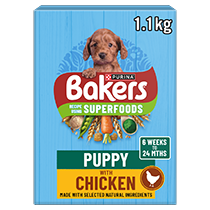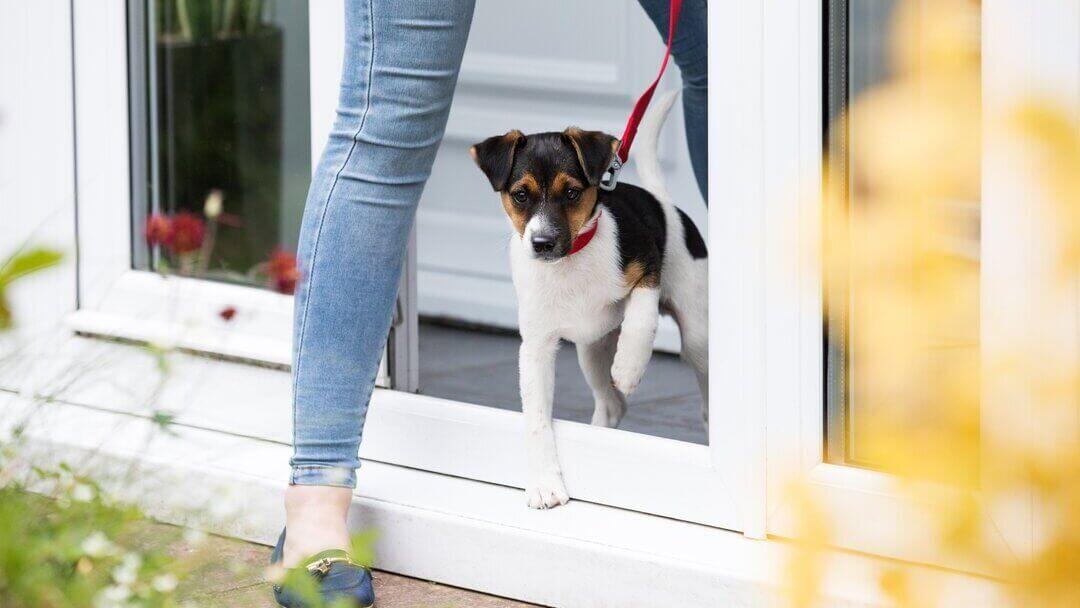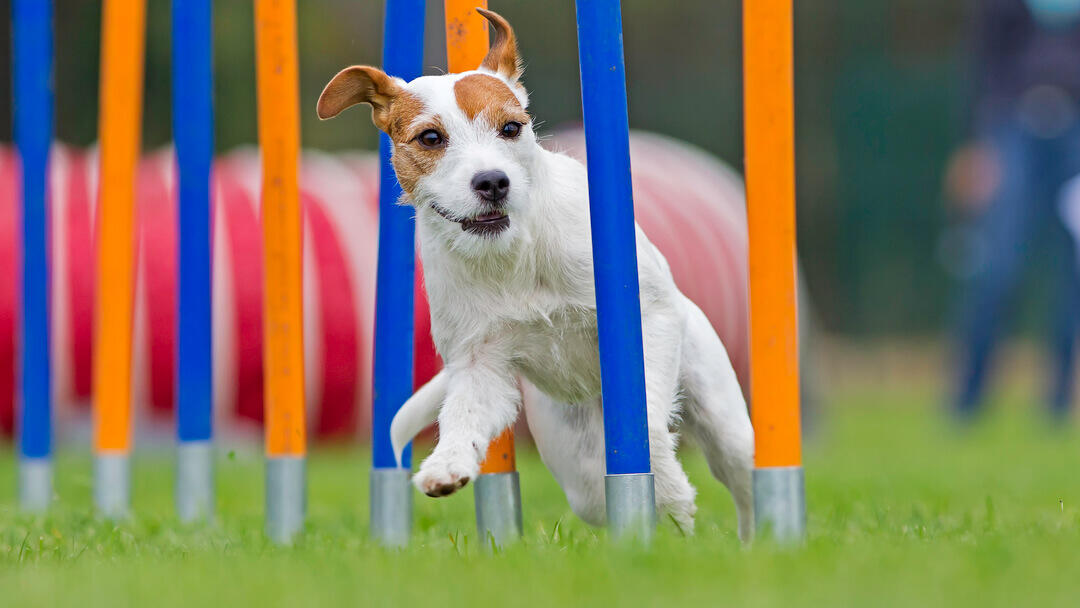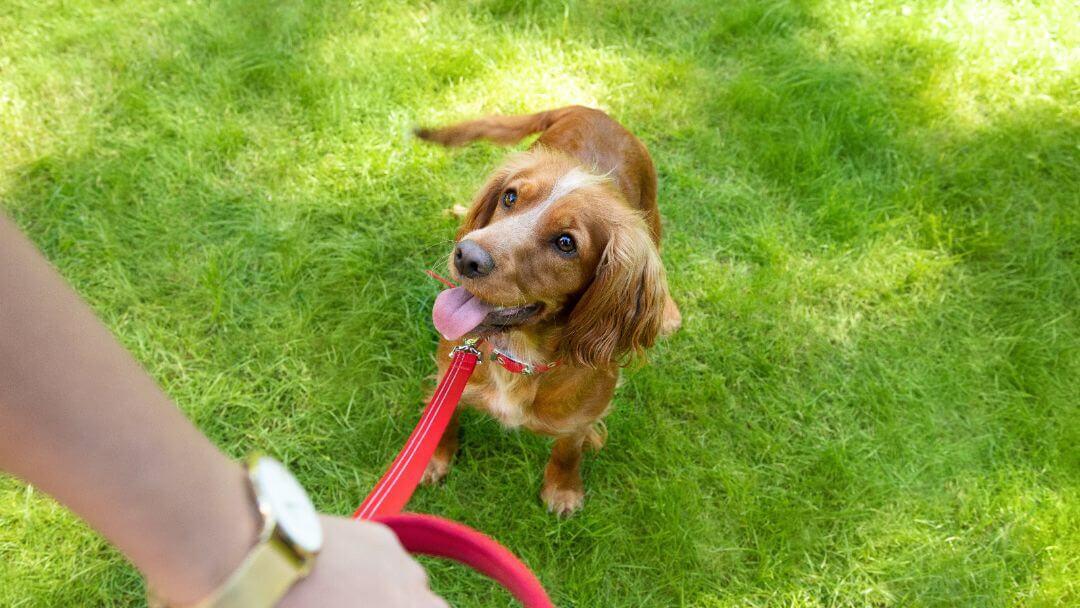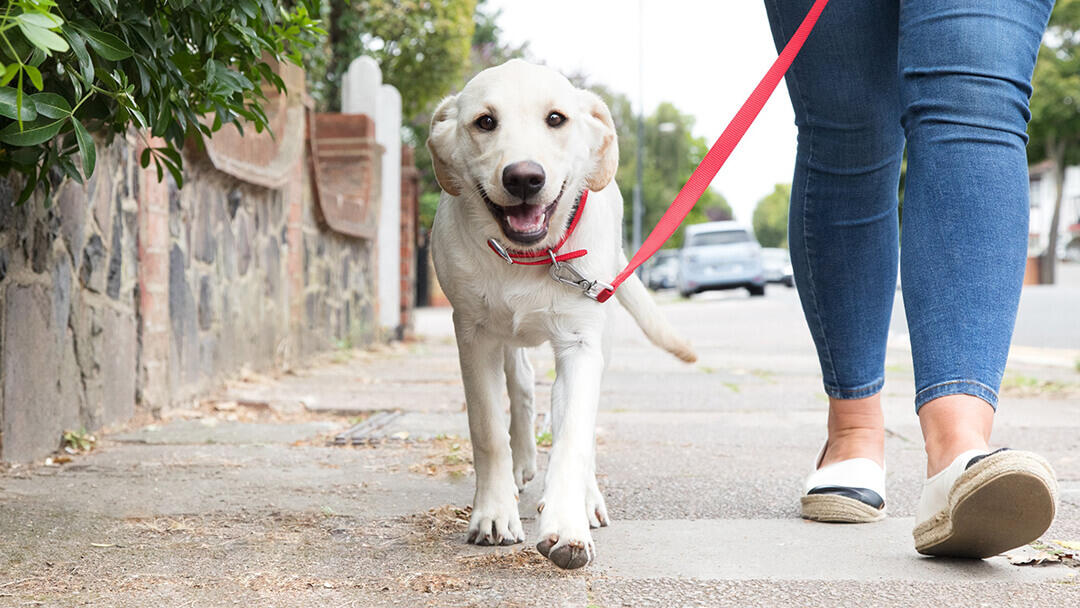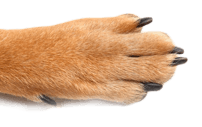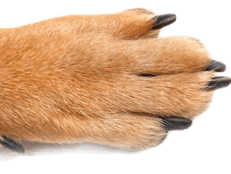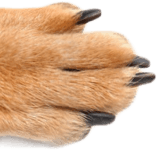

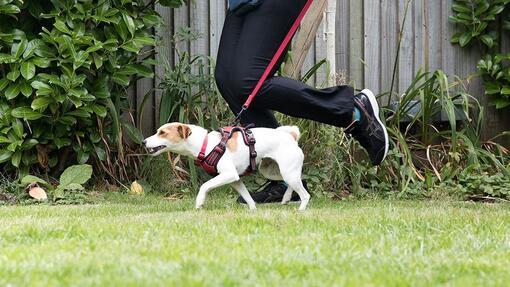
Healthy and happy puppies need exercise. Find out more about how to exercise your puppy appropriately using play, enrichment games and walks without putting a strain on their growing bodies.
How much exercise does a puppy need?
Exercise is important for a puppy as it helps their development – both physical and mental - gives them an outlet for all that puppy energy, and helps grow the bond between you as you explore the world together. It also gives your puppy a chance to discover the world beyond your front door.
How long should you walk a puppy?
This exercise shouldn’t be marching around the countryside or the local roads on a lead though. In fact, when it comes to continuous puppy walking, a good rule of thumb is that puppies should have no more than 5 minutes of exercise for each month of age, twice a day. So a five-month-old puppy would have no more than 25 minutes of walking twice a day – and this should be decreased in larger breeds.
Walking beside a human is tiring for a puppy and to walk at a constant pace is totally unnatural and can easily strain your puppy, so it is something you build up to slowly over time.
Even just walking for this short time, puppy walking should be very relaxed with lots of time to stop, sniff, explore and investigate the environment around them. Puppies are growing their brains as much as their bodies and this early exploration of the world around them is vital to their development.
Keep continuous structured puppy walking to no more than two minutes at any one time – and if at any point the puppy flops down, seems reluctant to walk, or looks tired, listen to them and act accordingly.
Playtime counts too!
Despite seeming to have endless energy, puppies are good at self-limiting their own exercise, and so making sure your puppy has plenty of opportunity to run around and play under their own steam is important. If you watch puppies at this age, you’ll see they run around madly for a few minutes and then flop down to rest or sleep.
This isn’t just about their growing bodies, however. Puppies do not have the cardiovascular system for endurance either so these shorts burst of energy are all they can manage as they are building stamina for the future.
Exercise at home
Your puppy will also get plenty of exercise following you around the house, being part of your day to day life, and on warmer days, even accompanying you into the garden. All of this adds to your puppy’s exercise and enrichment.
Signs You’re Over-Excercising Your Puppy
Though puppies need plenty of exercise, there is a limit to how much they should be exercising, depending on both their age and breed. Here is a list of signs to keep an eye out for in case you're over-exercising your puppy:
- Limping or walking unevenly.
- Keeping their leg(s) off the ground.
- Avoiding putting weight on a leg.
- Displaying lameness.
- Showing signs of discomfort in a leg.
- Hesitating to use a leg.
- Excessive panting or tiredness.
- Joint swelling or tenderness.
Risks of Over-Exercising Your Puppy
When we first get a dog, most of us dream of long rambling walks with our new companion - and there is no doubt that exploring the countryside or local parks together is a real joy of dog ownership. In our enthusiasm to ‘get out there’ however, we can sometimes forget that our new puppy is only a baby, and like any baby, their physical abilities are limited. This means that we can cause lasting damage by over-exercising a puppy or expecting too much in the early weeks and even months.
Until a dog reaches sexual maturity – which is different in each breed – their bones are still growing. The growth plates within the bones, which allow them to lengthen as the dog gets larger, stay soft for a surprisingly long time, which is why over-exercising your pup might make them vulnerable to injury – as can allowing them to jump off of things or land heavily. Injuries at this time may not heal properly and can cause lasting problems for the dog. In addition to the soft growth plates, the rest of the puppy’s bones are softer too and so can break easily.
It’s not just the bones that are developing either – these are held together with muscles, tendons and ligaments that are working hard to support the puppy’s growing bones and joints, and they can also be vulnerable to injury caused by over-exercising your puppy or from the wrong kind of exercise or play.
What Kind Of Exercise Do Puppies Need?
There are many exercises that you can do with your puppy to keep them healthy and entertained, here are a few that your puppy will love.
Thinking Activities
All puppies have busy brains as in these early weeks they are learning all they can about the world around them. So, giving your puppy something else to think about, in the form of enrichment toys or exercises, as well as physical exercise not only keeps them active but keeps their minds active too. Mental development is just as important as physical development!
Puppy Training
Of course, starting teaching life skills and early puppy training is a great way to keep their minds stimulated, build the bond between you, and help teach them how to fit into this crazy life they now find themselves in! And it can be every bit as tiring as physical exercise.
Does puppy play count as exercise?
Learning how to play together is one of the joys of dog ownership – and it can form a major part of your puppy’s daily exercise. Too many owners do not play with their dogs – when it is probably the very best thing you can do to build trust and a good relationship.
All games however should be gentle and not involve any rough play or pushing your puppy around with your hands. Use toys that your puppy enjoys playing with – this might take some trial and error as you discover what games they particularly enjoy.
Make sure any tuggy games are very gentle and never pull the toy upwards or sharply to the sides (as necks and backs are as delicate as legs), avoid any sharp twists and turns if you are throwing toys – and absolutely no jumping until your puppy is fully developed (and in some breeds such as Dachshunds, it is best avoided altogether).
What Kind of Toy Is Good for A Puppy During Exercise?
Interactive toys are perfect for puppy exercise as not only do they exercise their bodies, but they also exercise their brains. Everything from stuffed Kongs to creating treasure hunts and sniff trails in the garden where your puppy can use their nose to explore to find food or other treats are all great fun for puppies, give them an outlet for their natural sniffing and foraging instincts, and help grow the bond between you.
Safety Tips for Exercising Your Puppy
There are a few things to make sure of when trying to exercise your puppy. Here are some useful safety tips to bear in mind when exercising your puppy.
- Start teaching your puppy how to walk on a lead in the house before they are fully vaccinated and ready to go out.
- When you can go out, start somewhere quiet and with very short walks, and make sure to let your puppy stop, sniff or rest whenever they want to. Learning about this new environment takes a lot of energy.
- Make sure to check the weather before heading out for a walk with a young puppy. If it is too cold, or too hot it’s best to postpone till the weather improves.
- Don’t get carried away and walk too far – remember you have to get back home too!
- Always have poo bags with you – often more than you think you will need.
- Make sure your puppy has a comfortable harness that won’t rub or irritate them – and check it frequently to see if it needs adjusting – puppies grow fast!
While the amount of puppy exercise they can do is limited, don’t forget their brains are like a sponge and so this is a great time to focus on your puppy’s training – a good puppy class will help and also advise you on what is appropriate for your pup.
These early months are ones where you are building your relationship with your puppy – teaching them that their new world is safe and that you are fun to be with. This is where bonds are made through games, play and gentle handling – not through marching across the countryside. There’s plenty of time for that later!
There is plenty of puppy exploration to look forward to. Get your pup ready to meet other people and fellow dogs with these top tips for puppy socialisation.

